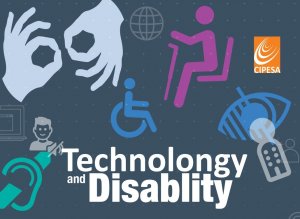By CIPESA Writer |
While advances in Information and Communications Technology (ICTs) including the Internet have created avenues of inclusion, for some, especially persons with disabilities, it has also widened the extent to which they are excluded from the social and economic potential of the digital society.
Persons with disabilities are more likely to experience adverse socio-economic outcomes than persons without disabilities, such as lack of access to information, less education, poorer health outcomes, lower levels of employment, and higher poverty rates.
Several factors are contributing to the deepening of this exclusion in the digital society, including a non-conducive legal and policy environment, poor investments in telecommunication infrastructure that supports ICT access for persons with disabilities, and the lack of access to the required assistive technologies such as screen readers, screen magnifiers, and braille.
According to the World Health Organisation, at least one billion people, or 15% of the world’s population, have some form of disability, while an estimated 2-4% have significant difficulties in functioning. In Africa, persons with disability are estimated at 10% of the general population, but could be as high as 20% in the poorer regions.
At the just concluded sixth Forum on Internet Freedom in Africa (FIFAfrica) held in Addis Ababa, Ethiopia in September 2019, participants explored the various challenges faced by persons with disabilities in accessing and using ICT, particularly assistive technologies.
Speaking at the special session on ICTs and Disability, Safari Shuti, a Member of Parliament from the Democratic Republic of Congo, stated that existing disability legal frameworks must be strictly enforced with penalties for non-compliance if they are to become effective.
“Within the legal framework, there should be accountability measures for lack of implementation, with clear provisions on who should oversee the implementation and penalties for lack of implementation,” he noted.
However, according to Sussane Dossi, a Member of Parliament in Malawi, some governments that already have disability rights laws do not have the technical or financial resources to implement many of the inclusion laws. She noted that the private sector players need to support government in implementation of these laws through providing technical support as well as the required funding.
Besides the non-conducive legal and policy framework, there is also the challenge of negative attitudes towards persons with disabilities, and lack of awareness of the different challenges that persons with disabilities face in accessing and utilisation of ICTs.
According to Mohamed Kimbugwe from the GIZ office in Uganda, “In the digital era, we need to focus on mind change and awareness creation. We need to improve accessibility to go beyond design. Persons with disability need information in friendly formats that they can easily navigate. We need to also look at affordability of accessible assistive devices.”.
Dr. Abdul Busuulwa from the Community Based Rehabilitation (CBR) Africa Network noted that providing access to relevant ICTs can go a long way in reducing or even eliminating the barriers that persons with disabilities face. “If you are having an impairment but have all the tech that you can use to navigate through the environment, it becomes debatable whether you have any disability,” he said.
During the same session, a digital campaign tool for persons with visual impairment, heartheblindspot.org was launched by Together!, in partnership with Small Media, and Data4Change. The website uses sonification of data to tell the story of digital exclusion for people who are blind or visually impaired in Ethiopia, and champions the need for a more inclusive and accessible internet. There are an estimated 4.5 million more than 850,000 people with visual impairment in Ethiopia.
Practical solutions.
According to Jude Okite from the Association for Accessibility and Equality in Kenya, disability rights activists and supporters need to start being intentional to include inclusion starting at a very early stages of all interventions. “We need to incorporate disability accessibility features to websites during the development stages as opposed to incorporating them later”.
It is equally crucial to invest in data and research to first understand the extent of disability on the continent. “Let us find out the figures. How many of those living with disability live in Africa, how many are women, how many are men, children, etc? said Okite. The lack of disaggregated data and research on the situation of persons with disabilities limits the effectiveness of programming to monitor and advance the rights of persons with disability.
The need for research was echoed by Dr. Busuulwa, who noted that ICTs and disability is still a virgin area for research and development. He urged the business community to proactively think of persons with disabilities as key consumers or a market: “Make it easier for persons with disability to become interested, and even much easier for the rest to flock your business.”
Mr. Awoke Dagnew, from Together!, noted that issues of persons of disabilities should be mainstreamed in all aspects, academia, research and funding. According to him, “Everyone should understand the situation of persons with disabilities and how they are suffering exclusion.”
Participants urged development partners to make it mandatory within funding structures for grantees to make commitments to include persons of disability in their programming and other interventions.
Besides enforcement of laws, national government were urged to work with private sector, especially the entrepreneurs, and telecom companies, through public private partnerships, to provide accessible and affordable services for persons with disability.
